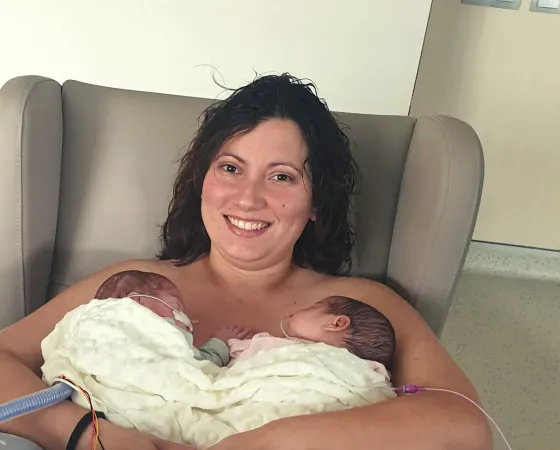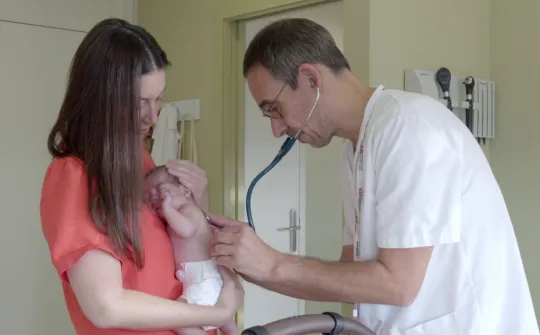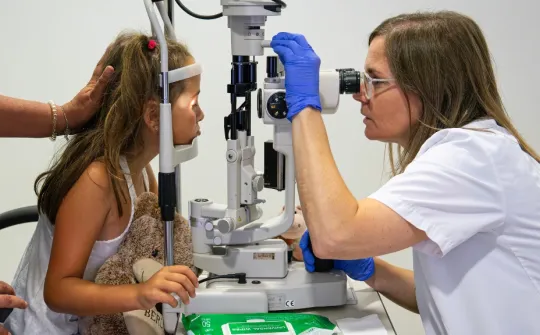SJD Barcelona Children's Hospital provides care for eight delayed-interval deliveries of twins in five years

When the first twin was born at week 28, staff considered delaying the birth of the second twin for as long as possible in order to increase the chances of survival.
Ian was born on 17th January last year, and his twin sister, Laia, was born nine days later on the 26th. The twins are just one year old, albeit their birthdays are on different dates.
Ian and Laia came into the world by what is known as a delayed-interval delivery. It is an uncommon procedure that practitioners use for extremely preterm twin births. When the first twin is born before week 28, the medical team caring for the mother can consider delaying the birth of the second baby for as long as possible in order to increase the baby’s gestational age and its chances of survival.
Various requirements must be met to do so: the first birth must be vaginal; the twins must be bicornuate (i.e. have two different placentas); after the birth of the first baby, contractions must stop and there must be no risk of infection for the mother and the babies.
Staff at BCNatal, the Obstetrics and Gynaecology Department at SJD Barcelona Children's Hospital, have cared for eight delayed-interval deliveries in the past five years. According to the scientific literature consulted, one of these is the longest delayed-interval deliveries ever recorded in Spain in which both babies survived: twins born 48 days apart. “We have had delayed-interval deliveries with a longer latency period, but in these cases the first baby does not survive, due to being born so prematurely that the baby is either stillborn or dies in the first days of life as a result of this extreme prematurity”, explained Silvia Ferrero, Obstetrician at SJD Barcelona Children's Hospital.
Only facilities with a neonatal intensive care unit and an obstetrics team with extensive experience in high-risk pregnancies can deal with delayed-interval deliveries. First of all, they must have a neonatal PICU able to provide all the care needed by extremely premature infants. They must also have an obstetrics team with expertise in high-risk deliveries that can monitor the mother to prevent infections in the uterus or other complications that could endanger her life and that of the baby still in the womb. This team must monitor the mother through regular check-ups, with blood tests, cultures, ultrasounds and amniocentesis, to detect any complications as early as possible and decide on the most appropriate time for the second delivery.





